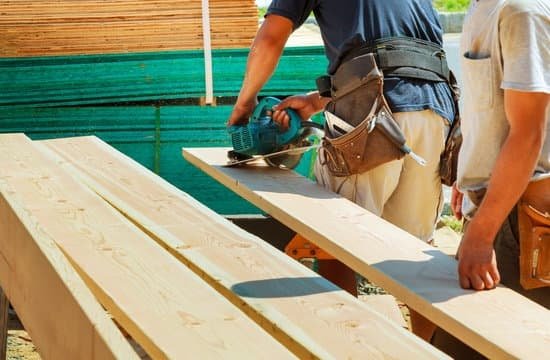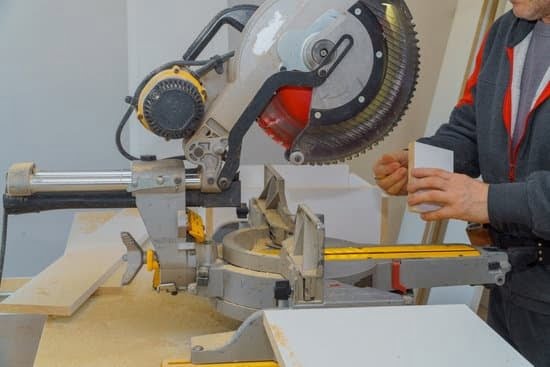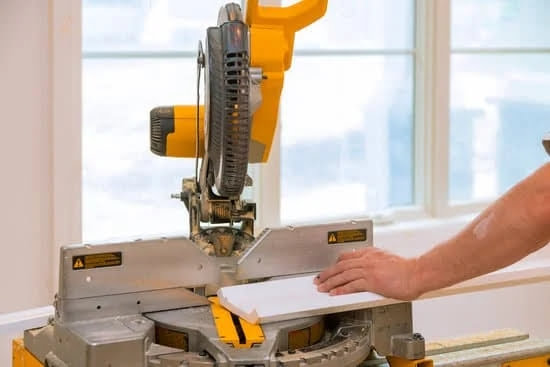Having the right tools is crucial for any woodworking shop to be successful. Whether you are a professional woodworker or a hobbyist, having the must-have tools for a woodworking shop is essential for producing quality work and ensuring safety. From power tools to hand tools, measuring and marking tools, safety equipment, and tool storage, each item plays a vital role in the efficiency and productivity of a woodworking shop.
In this article, we will explore the essential tools that every woodworking shop must have to create beautiful and durable wood projects. From power tools like table saws and jointers to hand tools such as chisels and hand saws, we will detail the key items needed for any woodworking project. We will also emphasize the importance of safety equipment in any woodworking environment and explore the necessity of proper tool storage and organization.
Whether you are just starting your woodworking journey or looking to upgrade your existing shop, understanding the importance of having the right tools is fundamental. Join us as we delve into the world of essential woodworking tools and equip ourselves with the knowledge needed to build a functional and safe woodworking space.
Essential Power Tools
Woodworking power tools are a cornerstone of any well-equipped workshop, as they provide the speed and efficiency needed to handle large-scale jobs. For those serious about woodworking, investing in essential power tools is crucial for taking on various projects, from building furniture to crafting small wooden items.
Table Saw
A table saw is one of the most important and versatile tools in any woodworking shop. It enables precise angle cuts and can handle a wide variety of materials, making it a must-have for all skill levels. Whether you’re cutting hardwood or softwood, a quality table saw is essential for any serious woodworker.
Jointer and Planer
For achieving perfectly flat and smooth surfaces on your lumber, having a jointer and planer is crucial. A jointer creates flat surfaces on the edge of boards, while a planer can produce consistent thickness throughout each board. These two machines work hand-in-hand to ensure that your lumber is appropriately prepared for your woodworking projects.
Band Saw
A band saw’s versatility makes it an essential tool in any woodworking shop. From intricate cuts to resawing large boards into thinner pieces, this type of saw allows for creativity and precision that cannot be achieved with other types of machinery. It should be noted that there are many different types of band saws available depending on the scale and the level of detail the user desires for their projects.
Hand Tools
- Chisels: Chisels are versatile tools that come in various sizes and shapes, suitable for cutting, carving, and shaping wood. They are essential for creating mortise and tenon joints, as well as adding decorative details to woodworking projects.
- Hand Saws: Hand saws are used for making straight or curved cuts in wood. The most commonly used hand saws in a woodworking shop include the crosscut saw, rip saw, dovetail saw, and coping saw. Each type of hand saw serves a different purpose and is essential for achieving precision cuts.
- Mallets: A wooden or rubber mallet is necessary for driving chisels and other cutting tools into the wood without damaging them. The weight of the mallet provides the force needed to make clean and precise cuts.
- Planes: Woodworking planes are essential for smoothing rough surfaces, flattening edges, and shaping wood. Bench planes, block planes, and shoulder planes are some of the essential types of planes that every woodworking shop should have.
In addition to these essential hand tools, it is crucial to keep them properly maintained and sharpened to ensure optimal performance in the workshop. Regular maintenance will extend the longevity of these tools, keeping them in top condition for all woodworking projects.
Measuring and Marking Tools
When it comes to woodworking, having the right measuring and marking tools is crucial for producing accurate and high-quality work. Whether you are a beginner or an experienced woodworker, these tools are essential for ensuring precision and consistency in your projects. Here are some must-have measuring and marking tools for a woodworking shop:
- Tape Measure: A reliable tape measure is one of the most basic yet important measuring tools in a woodworking shop. It allows you to take accurate measurements for cutting materials and determining dimensions for your projects.
- Squares: Precision is key in woodworking, and squares help ensure that your cuts and joints are perfectly aligned at 90-degree angles. Combination squares, try squares, and speed squares are all useful additions to your toolkit.
- Marking Gauges: These tools are used to accurately scribe lines on wood, which is essential for making precise cuts and joinery. They come in various designs such as wheel gauges, cutting gauges, and mortise gauges.
Having these measuring and marking tools in your woodworking shop will allow you to work with accuracy and efficiency. Combined with the right skills and techniques, they can help elevate the quality of your woodworking projects. Additionally, investing in high-quality measuring and marking tools will lead to better results in your craft.
Safety Equipment
Woodworking is an incredibly rewarding hobby or profession, but it also comes with inherent risks. That’s why prioritizing safety in a woodworking shop is crucial. In order to ensure the wellbeing of woodworkers, it’s vital to have essential safety equipment on hand.
Goggles are a must-have in any woodworking shop, as they protect the eyes from sawdust, wood chips, and other debris that can cause injury. Additionally, ear protection is necessary to prevent hearing loss due to prolonged exposure to loud power tools. Dust masks are also essential, as they protect against the inhalation of sawdust and harmful chemicals present in wood stains and finishes.
Another important safety equipment that should not be overlooked is a fire extinguisher. Woodshops contain many flammable materials such as sawdust and wood shavings, making them susceptible to fires. Having a fire extinguisher within easy reach can prevent small incidents from escalating into larger disasters.
In addition to these must-have safety equipment items, it’s important for woodworkers to receive proper training on how to use them effectively. Understanding how to properly fit goggles and dust masks, as well as when and how to replace them, are all key components of using safety gear effectively in a woodworking shop.
| Safety Equipment | Importance |
|---|---|
| Goggles | Protects eyes from sawdust and debris |
| Ear Protection | Prevents hearing loss from loud power tools |
| Dust Masks | Protects against inhalation of sawdust and harmful chemicals |
Tool Storage
The key to a safe, efficient woodworking shop lies in proper tool storage and organization. Without a well-organized space, it can be difficult to find the right tool when you need it, leading to frustration and potential safety hazards. Investing in the right storage solutions will not only keep your woodworking shop tidy but also help extend the life of your tools by protecting them from damage.
One of the must-have tools for a woodworking shop is a sturdy workbench with integrated storage. A good workbench provides a solid surface for woodworking tasks and can also include drawers, shelves, and pegboards for storing hand tools within easy reach. This helps maintain a clutter-free workspace while keeping important tools close by.
Another essential storage solution for any woodworking shop is a durable tool chest or cabinet. These pieces of furniture are designed with multiple drawers of varying sizes, providing ample space to store power tools, accessories, and small hand tools. Keeping these items stored away when not in use prevents accidents and keeps your woodworking shop looking clean and organized.
For larger power tools like table saws, jointers, planers, and band saws, investing in sturdy rolling stands or mobile bases can help maximize space in your workshop. These allow you to move heavy equipment around as needed for different projects while ensuring that they are safely stored when not being used.
When it comes to specialty hand planes or chisels, protective cases or pouches can keep them organized while protecting their sharp edges from getting damaged during storage.
| Storage Solution | Purpose |
|---|---|
| Workbench with integrated storage | Provides solid surface for tasks and easy access to hand tools |
| Tool chest/cabinet | Stores power tools and accessories while keeping the workspace uncluttered |
| Rolling stands/mobile bases | Maximizes space by allowing mobility of heavy equipment such as table saws or band saws |
Specialty Tools
Routers
Routers are incredibly versatile tools that can be used for shaping edges, creating joinery, hollowing out areas of wood, and even carving intricate designs. With the right bits, routers can add decorative edges, fluting, and even inlay work to your woodworking projects. They come in both handheld and table-mounted varieties, offering different levels of precision and control.
Spindle Sanders
Spindle sanders are ideal for smoothing curved edges or odd-shaped workpieces that would be difficult to handle with a regular sander. The oscillating spindle allows for a smooth finish without creating flat spots on the curve. These tools are especially useful when working with chairs, tables, or other furniture pieces with rounded or contoured edges.
Dovetail Jigs
For woodworkers who want to create strong and visually appealing joinery for drawers or boxes, a dovetail jig is an essential tool. It guides the woodworker in creating precise dovetail joints quickly and efficiently. Using a dovetail jig eliminates the need for complex hand-cutting methods and ensures consistent results every time.
When looking to expand your woodworking capabilities, these specialty tools are indispensable additions to any woodworking shop. Whether you’re creating custom furniture pieces or fine cabinetry, having these specialty tools will open up endless possibilities for your projects.
Maintenance and Sharpening
In conclusion, having the right tools in a woodworking shop is crucial for achieving quality results and maintaining a safe work environment. Whether it’s essential power tools like a table saw and band saw, or hand tools like chisels and planes, having the necessary equipment is key to successful woodworking projects. Additionally, investing in measuring and marking tools, safety equipment, tool storage, specialty tools, and maintenance and sharpening tools is essential for a well-equipped woodworking shop.
Maintaining and sharpening tools is often overlooked but plays a significant role in the overall performance and longevity of the equipment. Regular maintenance not only ensures that the tools operate at their best but also extends their lifespan. Keeping blades sharp on power tools like planers and jointers, as well as maintaining the cutting edges of hand tools like chisels and planes, allows for cleaner cuts and reduces the risk of accidents.
Ultimately, having must-have tools for a woodworking shop sets the foundation for successful projects while ensuring the safety of woodworkers. From power tools to maintenance equipment, each piece serves an important purpose in creating quality woodworking pieces. Therefore, whether you are a seasoned woodworker or just starting out, investing in these essential tools is vital for anyone serious about pursuing woodworking as a craft or hobby.

Hi everyone! I’m a woodworker and blogger, and this is my woodworking blog. In my blog, I share tips and tricks for woodworkers of all skill levels, as well as project ideas that you can try yourself.





